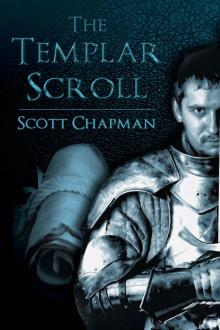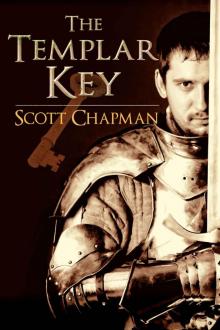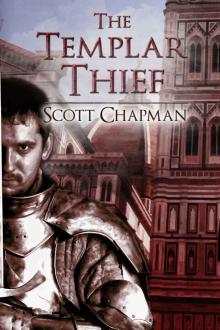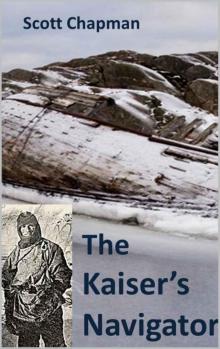- Home
- Scott Chapman
The Kaiser’s Navigator (Peter Sparke Book 2)
The Kaiser’s Navigator (Peter Sparke Book 2) Read online
The Kaiser’s Navigator
Scott Chapman
KINDLE edition
Copyright © 2014 Scott Chapman
All rights reserved, including the right to reproduce this book, or portions thereof in any form. No part of this text may be reproduced, transmitted, downloaded, decompiled, reverse engineered, or stored, in any form or introduced into any information storage and retrieval system, in any form or by any means, whether electronic or mechanical without the express written permission of the author.
This is a work of fiction. Names and characters are the product of the author’s imagination and any resemblance to actual persons, living or dead, is entirely coincidental.
PublishNation. London
www.publishnation.co.uk
Dedication
This book is dedicated to my mother who taught me that books are the passport to the world.
Introduction
Bare feet slapped along the deck behind Tore Andre as the boys raced in one of their endless games. Everything they did seemed to involve equal amounts of energy and noise.
Blue sky and blue sea filled their world. They were miles from land and had not sighted another vessel for two days.
It was the lack of any reaction from Tore Andre to their racket that gradually brought the crew of sea cadets down from their normal state of hyperactivity. They were used to his brief, noisy outbursts, but now it was as though nothing they did could provoke him. Bored, they started, one at a time, to cluster around their captain, following his gaze towards the horizon in the north where they squinted in the harsh sunlight, mimicking Tore Andre's silent vigil. Some climbed the rigging for a better view, others stood close, to make sure that they could see exactly what he was staring at.
"Fetch the telescope," said Tore Andre. Two of the boys scrambled, racing to the deckhouse, arriving back a few seconds later, breathless. For a long moment, Tore Andre gazed through the worn telescope. By now, some of the boys could also make out what he had been gazing at.
"What is it?" asked Jan Petter, one of the less raucous cadets. Tore Andre held the telescope to his eyes for a long, silent moment then, noticing the boy for the first time, he handed it to him without a word, never taking his eyes from the horizon.
By now all the boys could see the small, dark grey smudge in the distance. They had all seen ships pass before, but although they lacked the experience of Tore Andre's eyes they could tell that they were seeing something different.
"Ships," said the boy with the telescope, "warships. There is a whole fleet of them." He squinted closer at the growing steel shapes, noticing the white bow waves visible at even this distance. "They are moving quickly, possibly full steam."
The entire crew now stood silently, watching as the grey smudge split out into several distinct plumes of smoke, each with a tiny, pale metallic point at its base.
Steaming line abreast, the fleet powered across the water, heading almost directly towards the wooden training ship. A ship moving at full speed takes on a unique appearance, there is something about its position in the water that makes it plain that it is giving everything that it has, and these ships were flying across the water.
As the fleet drew closer, Tore Andre's disquiet grew. It was not simply their speed that alarmed him. Their direction made no sense. He did not have to look at a compass to understand the direction they had come from and their current heading.
It was the quiet Jan Petter who said it, "South-east, they are bearing south-east. There is no land south-east of here."
The crew were now witnessing something few people on earth ever had a chance to see: a battle fleet of state-of-the-art warships thundering across the ocean at the limit of their capabilities. People may have seen such ships in port, but for almost all, the only view they would ever have was in grainy newsreel films. These ships were nothing less than the most advanced pieces of technology on earth, and any of the larger ships had the destructive power to flatten a city. They were the physical embodiment of the highest levels of Victorian technology and they had only one purpose, to bring destruction to their enemies, and no single machine had ever been developed that could match them in their capacity to deliver violence.
From the position they were now at, the fleet was heading, at breakneck speed, directly away from any sea-lanes, away from any land. There was nothing in the direction they were headed except the freezing wastes of the southern seas and, ultimately, Antarctica.
As they approached, it became possible to see them as the huge individual ships they were, not just a collection of smoke plumes. Details of their superstructure could be made out and their massive guns were now plain to see. The Imperial battle flags that streamed from each ship could be made out, and eventually the boys could see the tiny figures of men on the bridges with their own telescopes trained on them. Some of the boys, overcome by the spectacle could not stop themselves waving, but the Kaiser's sailors simply stared at them.
"German," said Jan Petter, and irritated now by Tore Andre's silence he turned to face him directly. "Where is a German fleet going at that speed? Are they racing to the South Pole?"
It was only now that he noticed that Tore Andre was no longer looking at the fleet, but back into the distance where they had come from.
"They are not running towards anything," he said, pointing back to the horizon. "They are trying to escape."
Far in the distance, emerging from almost exactly the same position as the German fleet had come, was a sight that none of the boys would ever forget.
Out of the hazy horizon they could see tens of thousands of tons of warships hammering south-east on the trail of the Kaiser's fleet. Massive steel fortresses, clearly bigger than the German ships, were spreading across the horizon. The larger ships seemed to be almost impossibly broad and yet, despite their bulk they were obviously moving at incredible speed.
It was the South Atlantic Squadron of the Royal Navy. They had a look of cold terror about them as they flew across the waves towards their prey, intent on annihilation. And they were gaining on the Germans.
His face ashen with shock and disgust Tore Andre turned his back on the spectacle and went below. He locked his cabin door and fished for the bottle of Acquavit in his locker.
Chapter One
For a few days Peter Sparke was possibly the most famous man in the world. It was a horrible experience for him, and unsatisfactory for the world at large. The world has a set of minimum expectations for those people who have fame conferred upon them, and it can be frustrating for everyone involved when the process is not followed. For Sparke, the low point of his fame came when he heard his own name used in a comedian's routine.
"I'm not saying my wife is greedy, but after she's been in the kitchen not even Peter Sparke could find something left to eat."
The reason why this joke was felt to be funny was that Sparke was considered, suddenly, to be a world expert at finding things. In fact he did deserve, at least in part, this reputation since he had found something very unusual.
Through a bit of amateur research, a lot of common sense and a huge amount of luck he had uncovered a hidden underground vault in the Scottish Highlands, containing archives and artefacts from a long defunct medieval military monastic order. Alongside these archives he had also found the organisation's emergency funds and some of its most valued possessions, including an old, heavily inscribed stone chest.
Apart from the very significant cash value of the gold coins, the real reasons for his sudden global fame were that the monastic order was called The Knights Templar, and the old stone box was being referred to by experts around the world as, "The Arc
of the Covenant". Millions of words and thousands of media broadcast hours had already been dedicated to this discovery, and it seemed that every person on the planet had a theory as to the real story behind this discovery, since Sparke's simple explanation was far too hard to accept.
Peter Sparke was the focus of news reports around the world, and the media were loudly demanding that he adopt the role of a celebrity. Sparke had no interest in shackling himself to a media version of himself, and absolutely no intention of surrendering his life to a treadmill of answering the same dozen questions to a stream of journalists. He hid, but as these things tend to, the more he avoided the spotlight the greater the demand was for him to play the role that is expected of the famous.
In uncovering the vault, Sparke had managed to injure his head, giving himself a major concussion and causing heavy loss of blood. His hospital stay had helped him dodge the media, but he could not hide behind doctors forever. On being released from hospital, he tried to go home to his apartment in Munich but never made it out of the taxi. The press had somehow been tipped off and a small crowd of photographers blockaded the front of his building.
He fled to the hotel his company used for visiting business guests. He grabbed his room key and ran for the lifts. Once safe, he ordered a huge meal from room service and then slept for twelve hours.
His eyes opened at 10.00 am next day and within five seconds of coming awake a feeling of cold dread flooded through him. His old life now seemed so calm and desirable compared to this. He had no idea how to act or what to do in order to navigate his way back to the real world. Hiding in this hotel room until the novelty passed was his first option, but he was very much afraid that this might not be a workable solution.
By training, Sparke was an engineer. By profession, he was a crisis manager for one of the world's largest oil and mineral companies. He was used to staring into the heart of chaos and being the man who plotted a route back to the normal world. He knew that the first things he needed were facts. But he needed more than just the latest version of the truth. In order to understand the real situation, he had to listen to the babble that filled the air and filter out the nonsense. Once he understood this new world, he would be able to make some informed decisions.
He had left the hospital in the clothes he had arrived in. Everything else he owned was in his apartment and he had no intention of going anywhere near that building. Parting the curtains of his hotel room, he saw in the distance a huge electrical goods store. Within ten minutes he bought a basic tablet computer over the phone using his credit card. Then he called down to the front desk and asked if they could have the machine picked up for him. Thirty minutes after placing his order he had the computer on his lap and was on the internet.
The first mentions of his discovery had been small snippets of breaking news reported on the major news websites and most followed the same pattern as the BBC online who told the world that, "Unconfirmed reports suggest that a significant discovery of medieval artefacts and potentially valuable objects has been made by an amateur archaeologist in a location in the Scottish Highlands."
Within an hour this had been augmented by the line, "Sources close to the discovery suggest that the find may include objects of significant religious interest."
The race to be first with breaking news means that editors have to make a decision on whether to wait for the facts, or go with what they think is probably the story. First to take the event beyond internet news and into the broadcast world was Fox News in the USA who began trailing breaking news text across the screen, then interrupted their programming to announce that, "English scientists claim that they have discovered The Holy Grail in a Welsh castle."
Within thirty minutes the story had exploded across the world, and within twenty-four hours of the local police arriving at the vault to take possession of the find, Sparke's name and life story were public property. The shocking thing to Sparke was not the amount of initial errors the media made, but the accuracy of their reporting on him personally.
They knew everything, it seemed, and his university lecturers, schoolteachers and former colleagues were being dragged in front of the camera to help the world understand who Sparke was. His face flushed with embarrassment at the thought of the trouble he was causing people.
His company, too, was now in the spotlight, and the fact that he worked for a multinational oil company had already sparked a whole industry of conspiracy theories. His company did not relish unplanned publicity and it became increasingly likely that his career might have been brought to a sudden end. He needed someone to speak to, to talk through some options, to get another perspective.
More than a decade of constant business travel and frequent relocation had left him with few personal ties. As his family had fled Poland at the outbreak of World War Two, and his parents were dead, he had no living relatives that he knew of. His divorce had been almost insultingly painless for both he and his ex-wife. He had many acquaintances, some close colleagues, but it now it really came home to him for the first time that he had basically no friends.
His work had become his life and the one part of his work that offered even the hint of personal involvement was his CEO. Karin was a dizzyingly successful business leader who, at forty, was only just older than Sparke himself. He picked up the phone and called her.
"It's good to hear from you," she said in her gentle Bavarian accent. "Your injury is not so serious?"
"No, thanks for asking. I am feeling fine, but I am pretty much a fugitive at the moment."
"Are you hiding in a cave, or wearing a false beard? You are all over the television."
"To be serious, I have no idea what to do." There was a long pause on the line. "Well, do you have any idea what I can do?" asked Sparke.
"Probably you should come into the office," said Karin. "There are press people here, but we can ask Dieter to get you past them quietly. You are here in Munich, yes?"
"At the Hotel Bayerisherhof."
"OK, let me speak to Dieter and he will sort things out."
Dieter was the company's head of security and he was frighteningly competent. Being responsible for the safety of thousands of employees in some of the most dangerous and corrupt places on earth had given him experience in things few people could even dream about. The media did not worry him.
Sparke was briskly escorted from his hotel room, through the kitchens and into the back of a delivery truck. A few minutes later he was arriving at his office building and entering through a door to the building which he had not known, until that moment, had even existed. Dieter said goodbye to Sparke at the door of his own office.
The calm familiarity of his office was like a cool breeze on an August day. Karin was waiting for him and, when he walked in, she froze slightly at his appearance. He was not a pretty sight. The injury to his temple had left him with a bruise that went from his hairline to his cheekbone turning his left eye into a bloodshot mess, and the dressing on the second injury, at the back of his head, made his hair stick up like a cartoon character.
She smiled slowly at him, obviously glad to see him back in such familiar surroundings.
"You have caused quite a commotion," she said finally. "But you look like you are in pretty good condition, on the whole."
It was only now, looking at Karin, that Sparke realised she was probably the only person in his flat life who could make him feel better just by being in the same room as him. It was helped by the fact that she always seemed to be laughing at him slightly. He smiled back at her, struggling for the right thing to say.
"I am really happy to see you," he said. "I mean, really, pretty happy." For weeks now, Sparke had wondered if Karin thought of him as anything more than a work colleague, in fact a subordinate. Several times now he had thought there were signals, but the risk of reading them wrong was so great and the possibility that he was right seemed so remote that he had done nothing.
After several seconds of the two of them smiling at each
other across his office floor, he lifted his hand to his head.
"I bashed my head a bit."
"We spoke to the hospital in Scotland," she said, still smiling. "They said you will live."
"Yes, but live in a hotel room hiding from the television people?"
"That is another question. It is difficult to see what will happen with all this circus. You need to have a meeting with the President."
"Doktor Heinl wants to see me? That’s worrying. What do you think he makes of all this attention?"
"Well," said Karin, "he does not like unplanned events. That is why he normally likes you. However, this is a big unplanned event and it is not easy to see how all this publicity helps our company."
"So, you think he is going to fire me?"
"I could not say," said Karin, "but I would think that it is a possibility."
Chapter Two
Meeting the President and Chairman of the Board of Sparke's company was not meant to be a comforting or sociable experience. In an office that prided itself in its cutting-edge modern design, the inner sanctum of Doktor Heinl seemed as though it was caught in a time warp.
The Doktor had worked for the firm since he was fifteen. Then, it had been a tiny mining company based in the Ruhr valley and he had been employed as a junior assistant in the labs analysing samples from the company's pits.
Through herculean efforts he had managed a full-time job, put himself through engineering school and, at the same time, found time to become a champion swimmer, narrowly missing a place in the West German Olympic team. He lacked the required academic qualifications to be on a company training scheme, so he paid for his educational courses personally.

 The Templar Scroll: Book six in the series
The Templar Scroll: Book six in the series The Templar Key, By Number One Author (Peter Sparke Book 3)
The Templar Key, By Number One Author (Peter Sparke Book 3) The Templar Thief: Peter Sparke book 4
The Templar Thief: Peter Sparke book 4 The Templar Tower: Peter Sparke Book Five
The Templar Tower: Peter Sparke Book Five The Kaiser’s Navigator (Peter Sparke Book 2)
The Kaiser’s Navigator (Peter Sparke Book 2)